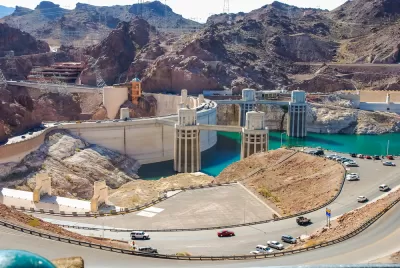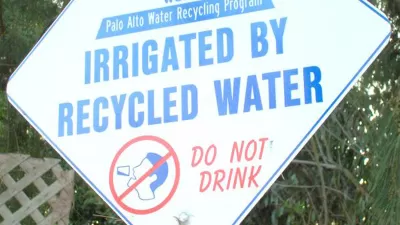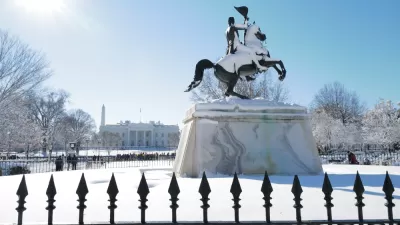In celebration of Water Week in the United States, as well as World Water Day, as celebrated by the United Nations, Brookings has complied a list of ten facts about water policy and infrastructure.

"From the water safety crisis in Flint, Michigan to the near-disaster with the Oroville Dam in California, a string of water-related events have made headlines, and called into question the U.S. focus on keeping critical water systems safe and functioning," according to a post by Alison Burke. So it's fortuitous timing that Water Week has arrived in the United States, and that today is the United Nation's World Water Day.
The post collects the Brookings team's research on the matters of water, so the article opens the floodgates, so to speak, to a lot more reading. Here are the ten facts as listed, with the relevant studies, research, and details available after the jump:
- Water plays a critical role in the economy.
- The federal government only accounts for a small share of total public spending on water infrastructure.
- Geographic and political boundaries can pose challenges to water investment
- The cost of water is on the rise in many cities.
- There's a mismatch between water investment demand and institutional capacity.
- Only a handful of drinking water utilities in the largest cities nationally rank highly in water investment
- The private sector owns most of the nation's dams.
- 69 percent of the nation's dams were built before 1970.
- Climate change and water cycles are closely linked.
- Despite concerns over water safety and infrastructure, Americans have greater access to clean water than most people around the globe.
FULL STORY: 10 facts about water policy and infrastructure in the US

Planetizen Federal Action Tracker
A weekly monitor of how Trump’s orders and actions are impacting planners and planning in America.

Congressman Proposes Bill to Rename DC Metro “Trump Train”
The Make Autorail Great Again Act would withhold federal funding to the system until the Washington Metropolitan Area Transit Authority (WMATA), rebrands as the Washington Metropolitan Authority for Greater Access (WMAGA).

DARTSpace Platform Streamlines Dallas TOD Application Process
The Dallas transit agency hopes a shorter permitting timeline will boost transit-oriented development around rail stations.

Renters Now Outnumber Homeowners in Over 200 US Suburbs
High housing costs in city centers and the new-found flexibility offered by remote work are pushing more renters to suburban areas.

The Tiny, Adorable $7,000 Car Turning Japan Onto EVs
The single seat Mibot charges from a regular plug in about as much time as an iPad, and is about half the price of an average EV.

Supreme Court Ruling in Pipeline Case Guts Federal Environmental Law
The decision limits the scope of a federal law that mandates extensive environmental impact reviews of energy, infrastructure, and transportation projects.
Urban Design for Planners 1: Software Tools
This six-course series explores essential urban design concepts using open source software and equips planners with the tools they need to participate fully in the urban design process.
Planning for Universal Design
Learn the tools for implementing Universal Design in planning regulations.
Roanoke Valley-Alleghany Regional Commission
City of Mt Shasta
City of Camden Redevelopment Agency
City of Astoria
Transportation Research & Education Center (TREC) at Portland State University
US High Speed Rail Association
City of Camden Redevelopment Agency
Municipality of Princeton (NJ)





























